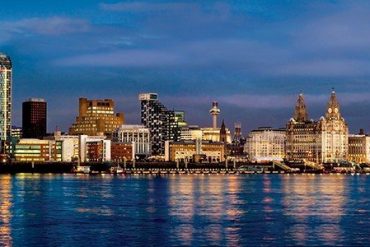The recent death of George Floyd has rightly led to anger across the globe, with thousands protesting and joining the movement, “Black Lives Matter”. Discussions around racial injustices and inequalities are vital and more prominent than ever. Now, a review by Public Health England (PHE) has highlighted the disproportionate impact of COVID-19 on Black, Asian and minority ethnic (BAME) people, showing that they are more likely to die from COVID-19 when compared with those from White ethnicity. The COVID-19 pandemic has exposed clear systemic racial inequalities within the UK.
The PHE review aimed to outline differences in the risk and outcomes from COVID-19 depending on certain factors[1]. The review showed that death rates were highest among people of Black and Asian ethnic groups, when compared with White ethnic groups. People from Black ethnic groups were the most likely to be diagnosed with COVID-19. After controlling for important factors (i.e., sex, age, deprivation, and region), people of Bangladeshi ethnicity were still twice as likely to die from COVID-19 compared to people of White ethnicity. Moreover, people of Chinese, Indian, Pakistan, Other Asian, Caribbean, and Other Black ethnicity, had between 10% and 50% greater risk of dying from COVID-19, compared to people of White ethnicity.
Since the beginning of the COVID-19 pandemic, the death rate (from any cause) was 4 times higher than expected among Black males, 3 times higher among Asian males, and 2 times higher in White males. For females, deaths were 3 times higher in Black females, 2.4 times higher in Asian females and 1.6 times higher in White females. These findings show the opposite pattern from before COVID-19, whereby BAME individuals had lower death rates (from any cause) than those from White ethnicity.
The review identified that age is still the largest risk for poor COVID-19 outcomes (in those diagnosed with COVID-19, people over 80 years old were seventy times more likely to die than those under 40 years old), with males also being more at risk than females. The review also found that the risk of dying from COVID-19 was more than double in the most deprived areas of the UK, compared with the least deprived.
One of the most poignant points from this review, was that all other risk factors (i.e., age, sex, deprivation) follow the pattern that has been seen prior to COVID-19, but BAME individuals previously had lower death rates than those of White ethnicity, and now have much higher death rates. The findings remained significant after controlling for deprivation, meaning more attention must be given to other potential contributors of inequalities, including racism.
Approximately 20% of health care workers are from a BAME background, but they account for approximately 60% of COVID-19 deaths in health care workers[2]. However, age, gender, and underlying health conditions only partly explain this. A report by the Royal College of Psychiatrists documented some inequalities faced by BAME staff and the potential impact it may have on COVID-19 related risks. For example, some experience discrimination or harassment, which has an adverse psychological impact and could make them less likely to raise concerns for PPE. Some experience reduced pay progression and promotion, which could create job insecurity and increase chances of duration of frontline exposure during COVID-19. The full report can be found here, and offers guidance for risk management in health care settings.
Additional evidence shows that those from a BAME background are more likely to work in insecure, low-paid work[3], and are more likely to live in overcrowded households and have less access to green space[4] [5]. Their employment and housing circumstances mean they are more likely to be in contact with more people, increasing the risk of contracting COVID-19. These pre-existing inequalities adversely impact the number of BAME individuals contracting COVID-19.
Though the review is informative, it has its limitations. One of the main limitations is that it uses cross-sectional data, meaning it can only show us associations between certain factors and COVID-19 outcomes, but do not tell us why these factors increase the risk of poor COVID-19 outcomes. The analyses did not control for several important covariates, such as underlying health condition, occupation, or salary. The review has also been heavily criticised for not outlining an action plan to tack these issues, despite highlighting that COVID-19 has increased existing health inequalities.
This report has understandably increased fear and anxiety amongst BAME individuals. The government must take action to provide clear guidance and support, to protect those at risk. However, throughout history and to this day, government policy has ignored racial inequalities. BAME individuals are over-represented in groups that are less likely to be helped (e.g. less secure employment or self-employed). Now, the pandemic has exposed the systemic nature of racial inequalities within the UK once again and more must be done to put an end to the clear structural and institutional racism, which has led to this.
Join the Black Lives Matter movement to fight for freedom, liberation and justice, here.
[1] GOV.UK. COVID-19: review of disparities in risks and outcomes. 2020. https://www.gov.uk/government/publications/covid-19-review-of-disparities-in-risks-and-outcomes
[2] Health Services Journal. Exclusive: deaths of NHS staff from COVID-19 analysed. 2020. https://www.hsj.co.uk/exclusive-deaths-of-nhs-staff-from-covid-19-analysed/7027471.article
[3] Trade Union Congress. Insecure work and ethnicity. 2017. https://www.tuc.org.uk/sites/default/files/Insecure%20work%20and%20ethnicity_0.pdf
[4] GOV.UK. Overcrowded households. 2018. https://www.ethnicity-facts-figures.service.gov.uk/housing/housing-conditions/overcrowded-households/latest
[5] Design Council. Community green: using local spaces to tackle inequality and improve health. https://www.designcouncil.org.uk/sites/default/files/asset/document/community-green-full-report.pdf





